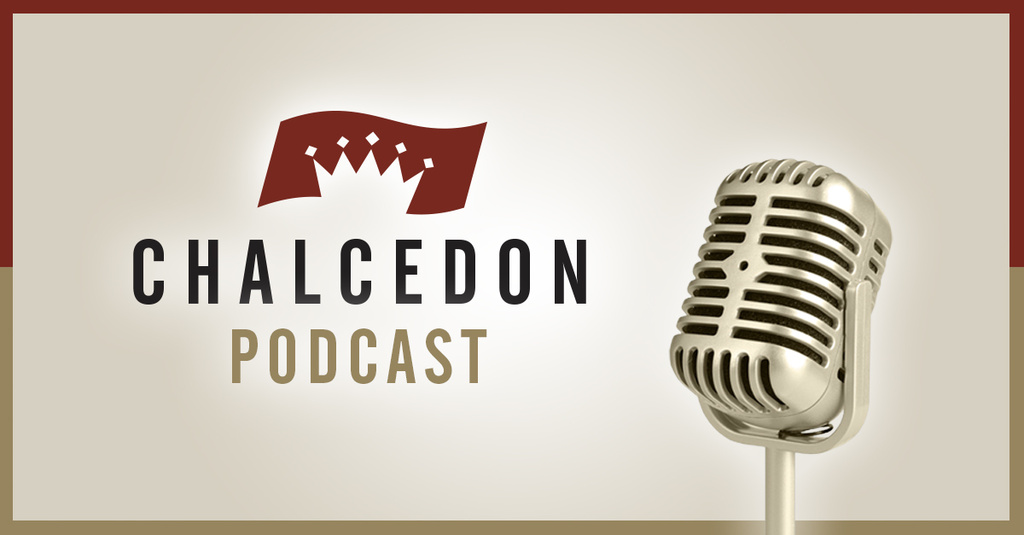
The Slow and Steady Work of Podcasting
Podcasting is not new for Chalcedon. In fact, we’ve been releasing discussion-based audio content in a digital format since the early 2000s. However, there was someone who was “podcasting before podcasting was cool” as far back as the 1980s, and that was R. J. Rushdoony, who for several years released his monthly Easy Chair tapes.

- Chalcedon Editorial
Podcasting is not new for Chalcedon. In fact, we’ve been releasing discussion-based audio content in a digital format since the early 2000s. However, there was someone who was “podcasting before podcasting was cool” as far back as the 1980s, and that was R. J. Rushdoony, who for several years released his monthly Easy Chair tapes. These recorded discussions are still available today on our website, and they remain a treasure of wealth and wisdom that can speak to us today.
Podcasts Bigger Than TV
The Easy Chair series is a big reason why we leveraged the budding internet in order to provide continual content in a way that was inexpensive and easy to produce. The downfall was that only a few people were tech savvy enough to know how to listen to such content, and at the time, we were limited to only featuring our audio content on our website. It wasn’t until smart phones and portable digital audio players became more common that the world began to see the value in podcasts, audio books, or audio sermons and lectures.
In short, it took over twenty years for the world to become regular consumers of digital content to where podcasts are in some ways more important than television and radio programming.
This became clear when the average person heard that a stand up comic, Joe Rogan, signed a $100 million deal with the Swedish streaming audio platform, Spotify. Not too long after—during the pandemic—Joe Rogan’s podcast had more viewers and listeners per episode (11 million) than CNN’s primetime news program hosted by Anderson Cooper (238,000). Even NBC’s Nightly News had 2.5 million fewer viewers than the comedian’s podcast.
When this data is combined with the radical changes in television where consumers are spending more time and money on streaming services like Netflix than they are cable television, then you can be sure a revolution is underway.
The same is happening with traditional print media, such as newspapers and magazines, as more and more publications are ending their printed products. The latest is the 48-year-old weekly People magazine, which looks to be soon going exclusively online.
We experienced this reality check when we discontinued our printed magazine Faith for All of Life. The expense for layout, printing, and mailing was far greater than the return because of the limited readership. In 2018, we felt it best to switch to mailing two bi-monthly newsletters (Arise & Build, Chalcedon Report) which focused on different aspects of our ministry’s expression.
Decentralized Information
What all of this means is that information is now radically decentralized and consumers are spending their time and money on what they specifically want, which has led to a plethora of specialized content creators on nearly every social media platform.
Even websites are not as trafficked as heavily as social media or streaming platforms like Spotify or YouTube, and this is both a blessing and a curse.
The blessing is that Chalcedon can better target new readers and listeners because of the powerful database owned by social media companies, but the downside is reaching them. One of the effective ways of reaching a new audience is by consistently releasing new content that our existing supporters and followers can share with their friends and family.
In essence, we are in the “sharing” era of social media and less in the “searching” era that preceded social media. That’s why you hear less about Google and more about Twitter, Instagram, YouTube, and Facebook.
The message and mission of Chalcedon are best suited for these “sharing” platforms, which is why a steady stream of digital content is necessary for reaching a wider audience.
For this we have two podcasts: the Chalcedon Podcast, hosted by Mark Rushdoony, Martin Selbrede, and Andrea Schwartz, and the Out of the Question Podcast hosted by Andrea and sometimes with Dr. Charles Roberts, a longtime Chalcedon supporter and pastor of Reedy River Presbyterian Church in South Carolina.
For the Chalcedon Podcast, each audio episode is posted on our website, as well as on popular podcast platforms like iTunes, and a video version is posted on YouTube. As of this date, we’ve recorded 23 episodes of the Chalcedon Podcast while Andrea has published 185 episodes of Out of the Question Podcast to date.
For now, it’s important that we continue to publish our podcasts since we have the opportunity to continually reach new people. If you haven’t experienced our podcasts, you can find them at https://chalcedonpodcast.libsyn.com and https://www.reconstructionistradio.com/podcasts/out-of-the-question.

- Chalcedon Editorial